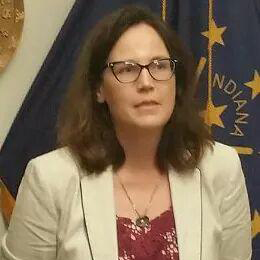
I recently attended the Centers for Disease Control and Prevention Grand Rounds: Addressing Gaps in Health Care for Individuals with Intellectual Disabilities. My colleague Liz Weintraub was one of the featured panelists, providing her lived experience and expertise to inform and lead change. Both during her presentation and in the question-and- answer segment, Liz asserted her firmly held belief that people with intellectual disabilities, including herself, do not need guardianship. In the style of the moment, I shared Liz’s quote with her picture on my social media pages.
The responses created a bit of a fury (both written and via phone calls) that in many ways reflected the culture and values clash that sometimes exists in the disability movement between family leaders and self-advocates. I was struck by the assertion of others’ firmly-held belief that some need guardianship for safety. The cases were quickly made around financial literacy, medical care, education, and employment decision making and ability to navigate systems. I was pained by the quick assertion of the need to strip other individuals of their rights permanently. It was that pain that framed my answer to the question directed to me: do you really believe that no one needs guardianship? My answer is careful, as I know life has endless complexities, and absolutes are challenging, but I do not currently know of anyone who needs guardianship — a truth that includes each of the cases outlined in responses on my social media feed.
The reality is that we now have a wide range of options to provide support without the stripping of rights that guardianship represents. Broadly, these options are called Supported Decision-Making, a series of relationships, practices, arrangements and agreements designed to assist an individual with a disability to make and communicate to others decisions about their life.
A constant and deeply thoughtful approach to how best to use supported decision-making, is, I hope, what we need to move past the clash that erupted on my social media to raise up the alternatives to guardianship that can be tailored to meet the unique needs of each individual, shifting as those needs change and evolve.
Some options are legal or pseudo-legal and can provide clear structure to address needs for support. A Power of Attorney usually authorizes an agent to make medical decisions (called a Healthcare Power of Attorney) or financial decisions (called a Financial Power of Attorney). Signed release of information – with medical providers, banks or schools – to share information about their clients with others allows designated individuals to provide support. Use of trusts allow a third party to hold money and assets on behalf of someone else (called a “beneficiary”). The Representative Payee Program, through the Social Security Administration, allows a representative to manage a beneficiary’s Social Security or SSI payments. Other options are more informal and related to individual use of assistive technology, community services and formal and informal supports.
The vast array of options connected to supported decision-making could, in the right combination for each individual, address all the concerns raised to me. The complexities of why they are not the current default solution are as much about system bias as they are about the personal beliefs of families. Too often schools, medical providers and disability services systems advise families to pursue guardianship. The time and guidance needed to explore and activate a person-centered supported decision-making plan is not yet the norm. Raising up supported decision-making is part of the work needed to address ableism, a reality that speaks to the human and civil rights issues at risk when guardianship is the default.
Liz’s statement “no one needs guardianship” and the conversations that followed are a chance to shift the norm. It is the work of all of us in the disability movement – family leaders, self-advocates and allies – to build on partnerships and relationships to support self-determination in order to protect the rights of all people.

Comments are closed.